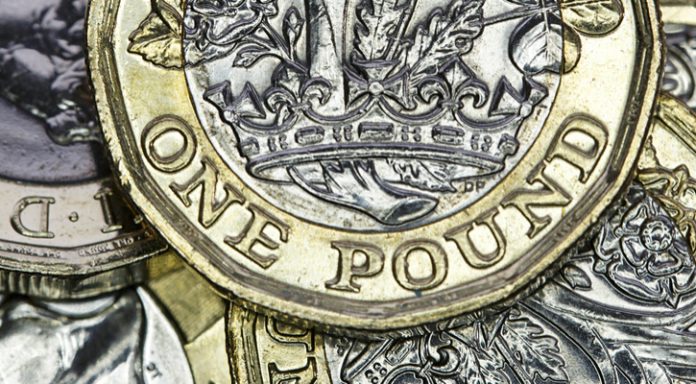As both the pound and the euro were both under considerable pressure the pound euro exchange was evenly matched for most of the previous session before selling off into close. The pair closed at €1.1305, down 0.1%.
| What do these figures mean? |
|---|
|
When measuring the value of a pair of currencies, one set equals 1 unit and the other shows the current equivalent. As the market moves, the amount will vary from minute to minute. For example, it could be written: 1 GBP = 1.13990 EUR Here, £1 is equivalent to approximately €1.14. This specifically measures the pound’s worth against the euro. If the euro amount increases in this pairing, it’s positive for the pound. Or, if you were looking at it the other way around: 1 EUR = 0.87271 GBP In this example, €1 is equivalent to approximately £0.87. This measures the euro’s worth versus the British pound. If the sterling number gets larger, it’s good news for the euro. |
The pound was broadly under pressure for much on Wednesday as investors looked nervously ahead to UK Prime Minister Theresa May’s showdown with her back benchers. Prior to the meeting with the so called 1922 Committee, Theresa May had been told to “being her own noose”. Theresa May went to the meeting with the aim to win over the rebels.
Despite rumours circulating that a challenge to Theresa May’s leadership was imminent, the PM received a warm welcome at the meeting. The meeting was a success for May with rebel backbenchers talking of a growing sense of unity within the party. The fact is that Brexit negotiations are a mess and removing Theresa May now is not going to change that. Even with a more stable domestic political backdrop the pound remained under pressure.
| How does political risk have impact on a currency? |
|---|
| Political risk drags on the confidence of consumers and businesses alike, which means both corporations and regular households are then less inclined to spend money. The drop in spending, in turn, slows the economy. Foreign investors prefer to invest their money in politically stable countries as well as those with strong economies. Signs that a country is politically or economically less stable will result in foreign investors pulling their money out of the country. This means selling out of the local currency, which then increases its supply and, in turn, devalues the money. |
Will ECB’s Draghi drag the euro lower?
The euro was also broadly under pressure in the previous session. Investors remain nervous over the souring relationship between Italy and Brussels. Rome remains defiant that it will not make changes to its budget, putting it on course for a clash with Brussels. The current budget proposal breaks EU rules over budget deficit.
In addition to political woes, manufacturing pmi’s from Germany and France were disappointing. The data showed that manufacturing activity slowed by more than expected in October. The weaker figures raised concerns over a broader slow down in global growth. The disappointing figures pushed the euro southward.
Today attention will turn to the European Central Bank, which will be updating the market on its monetary policy. Analysts are not expecting the central bank to raise interest rates. Market participants will be paying more attention to ECB President Mario Draghi’s press conference where he will field questions on policy, the Italy’s budget standoff and the eurozone’s falling inflation. Any cautious comments from Draghi could cause investors to push back interest hike hopes sending the euro lower.
| Why do raised interest rates boost a currency’s value? |
|---|
| Interest rates are key to understanding exchange rate movements. Those who have large sums of money to invest want the highest return on their investments. Higher interest rate environments tend to offer higher yields. So, if the interest rate or at least the interest rate expectation of a country is relatively higher compared to another, then it attracts more foreign capital investment. Large corporations and investors need local currency to invest. More local currency used then boosts the demand of that currency, pushing the value higher. |
This publication is provided for general information purposes only and is not intended to cover every aspect of the topics with which it deals. It is not intended to amount to advice on which you should rely. You must obtain professional or specialist advice before taking, or refraining from, any action on the basis of the content in this publication. The information in this publication does not constitute legal, tax or other professional advice from TransferWise Inc., Currency Live or its affiliates. Prior results do not guarantee a similar outcome. We make no representations, warranties or guarantees, whether express or implied, that the content in the publication is accurate, complete or up to date. Consult our risk warning page for more details.
This article was initially published on TransferWise.com from the same author. The content at Currency Live is the sole opinion of the authors and in no way reflects the views of TransferWise Inc.





